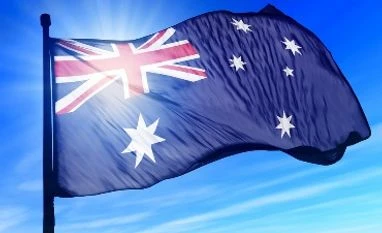Andrew Robb, with his counterparts from 11 other nations signed the Trans Pacific Partnership Agreement (TPP) deal in Auckland in New Zealand.
He said the agreement brings'enormous promise across both traditional areas of trade and investment and so-called 21st century areas like e-commerce and increasingly important global value chains.
More From This Section
"The tariff cuts will deliver material gains for our exporters across the board and place downward pressure on the cost of imported goods for households and businesses, but the benefits that will flow from the creation of a more seamless trading environment are not well understood," Robb said.
The minister expressed hope of securing a free trade agreement (FTA)with India 'sometimes this year', a local TV channel reported.
He said "there are some quite sensitive issues but we are making good progress," the report said.
According to a feasibility study conducted by both the countries jointly, the comprehensive FTA is likely to result in India gaining between 0.15 and 1.14 per cent of its GDP, while Australia would end up with the gains between 0.23 and 1.17 per cent of its GDP.
The two-way trade between India and Australia stood at USD 12.12 billion in 2014-15.
India's foreign investment into Australia is worth USD 11 billion. While, Australia has invested only USD 649.37 million during April 2000 and January 2015 in India.
Robb further said the TPP would see the elimination of 98 per cent of tariffs among the 12 states.
"The tariff cuts will deliver material gains for our exporters across the board and place downward pressure on the cost of imported goods for households and businesses, but the benefits that will flow from the creation of a more seamless trading environment are not well understood," he said.
"The embrace of paperless trading, streamlined customs procedures and trading rules, assistance for SMEs, more seamless data flows and greater flexibility with data storage, are all features of the TPP," he added.
The agreement also contains provisions to help stimulate new investment and as experience shows, when you deepen trading relations increased investment inevitably follows, he said.
The US-led TPP agreement sets in place common rules for labour, the environment and for the first time in a trade treaty, rules to combat bribery and corruption. It will also ensure private companies and businesses are able to effectively compete against State Owned Enterprises (SOEs).
Robb saidthe agreement will promote the expansion and
diversification of Australia's world-class services sector by liberalising key barriers, providing more transparent and predictable operating conditions, and it will capture future services sector reforms.
He said the TPP, which was open to other countries to join in the future, offered a pathway to a free trade area across the entire Asia Pacific region.
"Given its reach and potential this is an agreement we simply cannot afford not to be part of," he added.
The TPP is the world's most significant trade and investment agreement finalised in more than two decades with member countries accounting for around 40 per cent of global GDP.
Australia's exports of goods and services to these countries were worth USD 109 billion last year - a third of Australia's total exports.
In 2014, Australian investment in TPP countries was 45 per cent of all outward investment. Tariffs will be eliminated on USD 9 billion of Australia's dutiable exports to TPP countries, including USD 4.3 billion worth of agricultural goods with new levels of access for beef, dairy, sugar, rice, grains and wine.
The TPP members include: Brunei, Chile, New Zealand, Singapore, Australia, Canada, Japan, Malaysia, Mexico, Peru, the US and Vietnam.
)